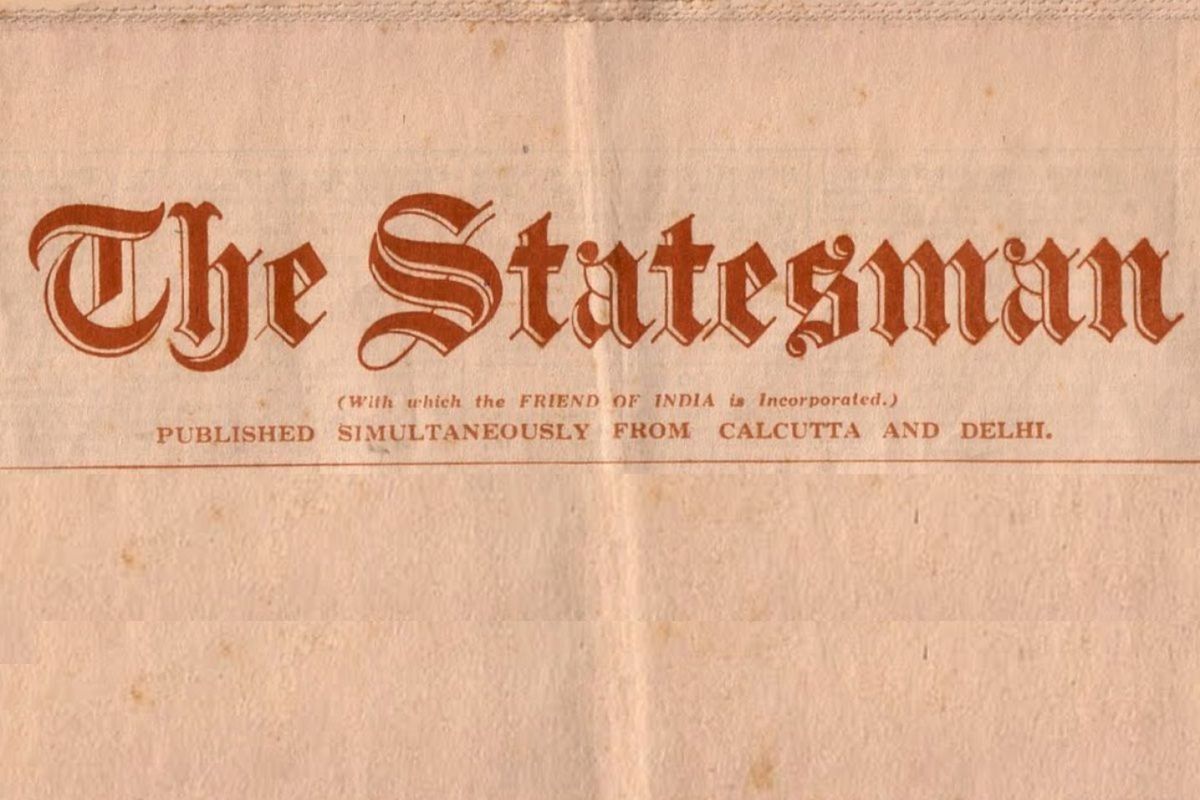Chhatrapati Shivaji Maharaj katha day 8: Baba Ramdev calls for ‘educational freedom’
Ramdev said that It is now time to repeal the Indian Education Act of 1835.
On this day a century ago, these were some of the news items The Statesman readers got to read about India and the world.

OCCASIONAL NOTE
It is not difficult to guess at the inspiration of Colonel Wedgwood’s question in the House of Commons as to the employment of aeroplanes at Gujranwalla. The enquiry was almost certainly prompted by an infamous circular recently issued over the signatures of three Labour leaders in England, formulating the most disgraceful charges against the British administration in India. Among other things it was insinuated that innocent and unarmed crowds, including women and children, had been “bombed from the air and shot down with machine guns.” It is refreshing to see that here are limits even to Mr. Montagu’s patience with such malicious slanders upon British methods, and that “if it was a question of dispersing a mob threatening women and children who were insufficiently guarded he refused to interfere with the discretion of the military authorities.” It would be too much to expect of the signatories of the document referred to that they should spare a thought to the danger threatening British women and children at Gujranwalla; nevertheless the only women and children who ran any risk of being hurt on the occasion in question were British women and their children, who would certainly have been massacred if the airmen had not intervened.
MANIFESTO BY THE INDIAN MINING FEDERATION
Advertisement
The Committee of the Indian Mining Federation fully recognise the paramount duty of the Government to suppress with a strong hand the anarchical crimes which for a while were rampant in several parts of the country and to which the members of the Indian commercial community were frequently the prey. For the due discharge of their responsibility the Government thought it necessar y to remain strengthened with the powers provided under the Rowlatt Act, but of the people some without due regard to the potency for evil of the movement of passive resistance, inaugurated it with the object of getting the Rowlatt Act withdrawn. The Committee cannot refrain from expressing their feelings of consternation and disgust at the tragic occurrences which so quickly followed each other in several parts of the country during the last few days and desire to express their strong disapproval of the policy of passive resistance being put into operation in India.
GIRLS DISGUISES
Yesterday, before the Third Presidency Magistrate, Sheikhs Karim and Basir, were charged with having in their possession for immoral purposes Sumroo, a girl of about 12 years of age. Evidence went to show that in order to avoid detection, the girl’s hair had been short and during the day, dressed in a kurtah and loongi, she passed as a Mahomedan boy, while at night she was transformed into an Anglo-Indian girl, with a powdered face and high-heeled shoes. In this guise, she used to parade the streets and decoy men to the house of the first accused, who lived on her earnings. Later on, learning that the first accused intended to sell her to a woman at Kidderpore, she ran away and took shelter in the house of one Bibi Jan, from where she was rescued by the police. The Magistrate on the evidence before him, sentenced the first accused to six months’ rigorous imprisonment and discharged the second.
ASSISTANCE BY THE NATIVE STATES
The prompt and hearty co-operation of the Punjab Native States with the Government has been of the greatest assistance in suppressing the recent disorder in the province. The durbars have one and all given practical demonstration of their willingness to help and, as suggested by Government, have directed their efforts principally towards the protection of railway and telegraph communications. Throughout they have been acting in the closest co-operation with the local military authorities. Patiala mobilised its troops, many of which were on leave, and sent out, within 12 hours of hearing the news of the outbreaks, detachments numbering 500 men to important points such as the railway junction of Raipura, Dhuri, Jakhal and Bhatinda, where a railway strike was beginning. The durbar issued instructions to all villagers to resist by force any attempted attacks upon communications, and also distributed notices broadcast contradicting the entirely unfounded rumour that damage had been done to the Golden Temple in Amritsar.
Advertisement